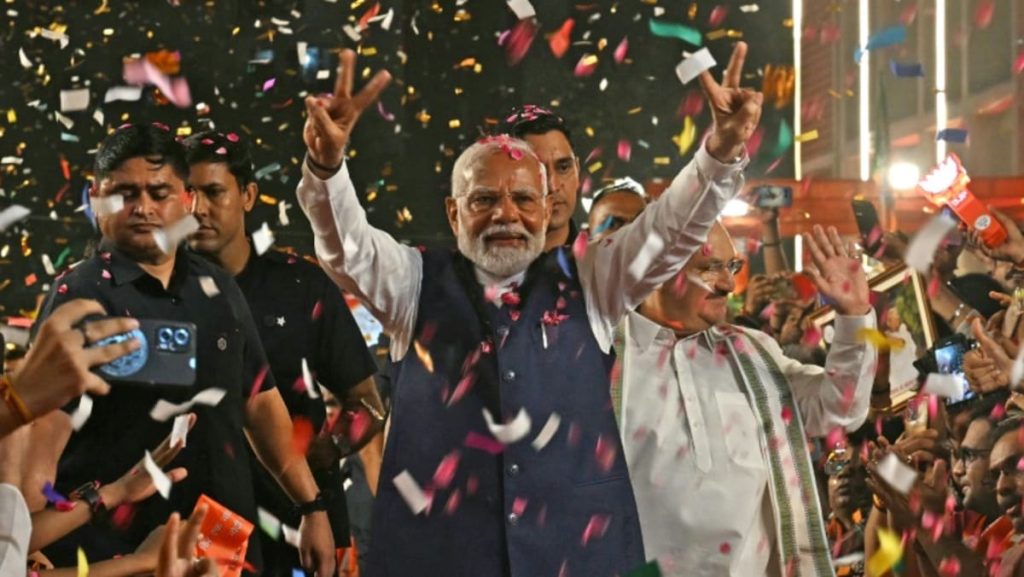The recent election results in India saw a surprising outcome with Prime Minister Narendra Modi’s Bharatiya Janata Party (BJP) winning fewer seats than expected. Despite projections of a landslide victory for Modi, the BJP secured 240 seats in parliament, falling short of a majority on its own with 32 seats to spare. The main opposition Congress party saw a significant improvement in its performance, nearly doubling its 2019 tally by winning 99 seats. This unexpected turn of events has led commentators to suggest that Modi will now have to navigate the complexities of coalition politics.
Christophe Jaffrelot, a professor at King’s College London, noted that Modi’s dominance in Indian politics has waned, requiring him to engage in the coalition game for the first time in his career. The Congress party president, Mallikarjun Kharge, described the election result as a vote against Modi’s political style and substance, marking a significant political and moral defeat for him. Modi himself experienced a personal setback, winning his constituency of Varanasi with a considerably smaller margin of votes compared to his previous election.
Political scientist Ashutosh Varshney highlighted the significance of the election results as a reflection of the voters’ desire to uphold constitutional values and citizen dignity. He suggested that the outcome also indicated concerns about the idea of India, particularly in the context of increasing societal animosities, polarization, and rising inequalities. The electorate’s yearning for the defense of these values played a crucial role in driving Modi’s setback and shaping the political landscape in the country.
The election results have underscored a shift in India’s political dynamics, signaling a weakening of Modi’s hold on power and the reemergence of the Congress party as a formidable opposition force. The BJP’s failure to secure a majority on its own has set the stage for a more fragmented political landscape that necessitates coalition-building and negotiation. As Modi navigates this new reality, he will face the challenge of accommodating diverse interests and perspectives within a coalition government, a departure from his previous term marked by a more centralized and dominant leadership style.
Looking ahead, the political landscape in India appears poised for change as the balance of power shifts and new alliances take shape. The outcomes of the recent election reflect broader societal concerns around constitutional values, citizen rights, and growing inequalities. As Modi and his counterparts grapple with the challenges of coalition politics, the future trajectory of Indian governance remains uncertain. The election results have set the stage for a complex and dynamic political environment where coalition dynamics will play a pivotal role in shaping policy decisions and governance in the country.













